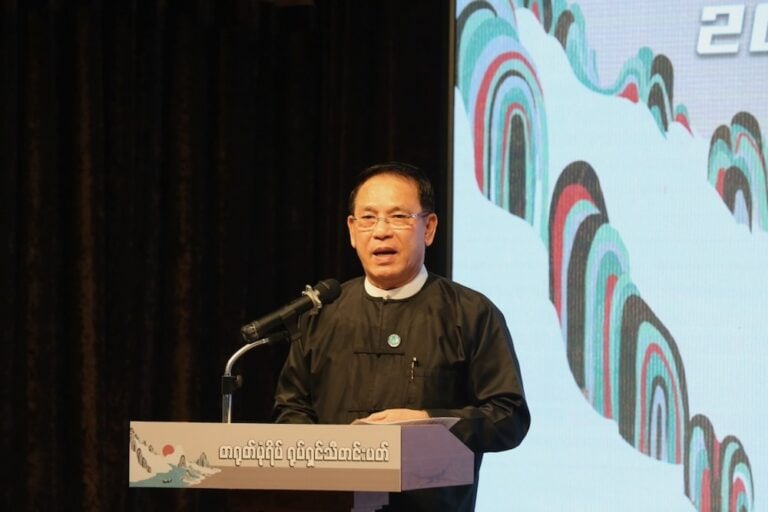(Mizzima/IFEX) – Private weeklies in Burma have been ordered by the Press Scrutiny and Registration Board not to run any story that depicts the destruction caused by the cyclone that pummelled the Rangoon and Irrawaddy deltas; rather, they have been told to cover only the reconstruction efforts by authorities, according to local journalists. Mizzima’s sources […]
(Mizzima/IFEX) – Private weeklies in Burma have been ordered by the Press Scrutiny and Registration Board not to run any story that depicts the destruction caused by the cyclone that pummelled the Rangoon and Irrawaddy deltas; rather, they have been told to cover only the reconstruction efforts by authorities, according to local journalists. Mizzima’s sources spoke on condition of anonymity, for fear of reprisal from the junta. The secretive regime has often punished people who talk to foreign media with termination of employment or jail.
The authorities are reportedly angry at the head of the censorship board, Major Tint Swe, for having permitted the publication of some cyclone stories that described damage to buildings and loss of property, supplemented by pictures.
Junta head Senior General Than Shwe flared up when he found a front-page story from the bi-weekly “Eleven News Journal” that said: “The plight of storm victims should not be exploited”.
“Because Burmese readers are clever enough to read between the lines, they immediately realized that the story did criticize the junta, who have been showing how ‘kind’ they are, in helping the victims by using international aid as if it were their own,” said a journalist.
“We were also warned that we must not describe how people are starving for lack of food,” a senior journalist, who has five years’ reporting experience, told Mizzima.
The Burma Media Association (BMA), a Burmese press freedom watchdog based in Thailand, condemned the junta for the restriction, saying it not only violates press freedom but also violates and suppresses the peoples’ right to be informed.
“The Burmese government is trying to conceal the sufferings of the people and is making false claims that they are conducting rescue and relief missions,” said BMA Secretary Son Moe Wai.
A journalist who returned from the worst-hit areas said she found nothing being reconstructed there by the junta.
“So, what should we cover under the title ‘reconstruction phase’?” she asked. “They (the soldiers) haven’t even finished clearing the towns yet, let alone undertaken the ‘reconstruction phase’.”
“Journalists are meant to tell the truth so that people will know of the situation in Burma. Suppressing the press at this time is outrageous and shameful,” Son Moe Wai said.
Meanwhile, the junta’s earlier tolerance for local journalists to travel freely appears to have worn thin as nine Rangoon-based journalists from four weeklies who had gone to Hlaing Bwe village in Maw Gyun Township, Irrawaddy Division, to cover the devastation there, were reportedly told to leave overnight.
An editor with a weekly said the journalists arrived on 18 May 2008 but were ordered to leave the next morning after being forced to sign a paper vowing that they would not return to the village to do any news coverage.
Updates alerts on restriction of post-cyclone reporting: http://ifex.org/en/content/view/full/93681


